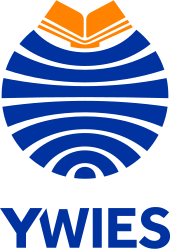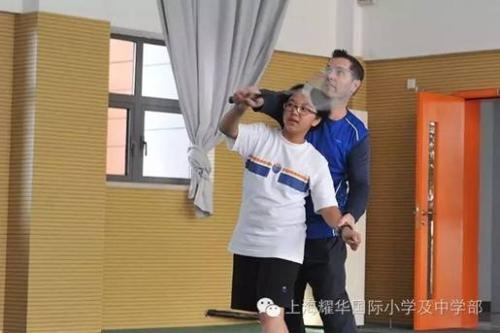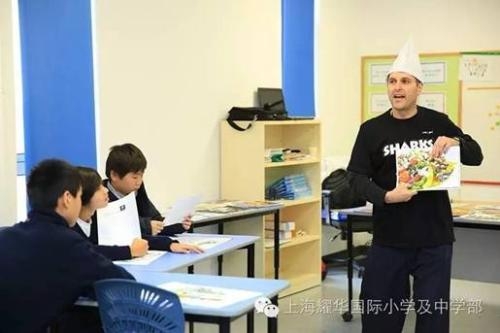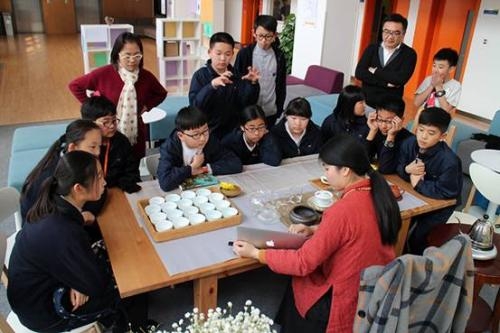Go Back
News
Press
News.xinmin.cn: Experience the Unique Boarding Life of YWIES Shanghai Lingang
Press
08 Aug, 2016
10 : 00
Would you like to know where to stand to score a three-point basket on a basketball court? How about what to ask a sommelier at a three-star restaurant in America? Or maybe you just want to excel at clever English word games with friends. All of these skills are taught as part of the after-school English language programme here at Yew Wah.
The Residence Hall Teachers of YWIES made a promise to parents and students at the beginning of the year to extend language learning in a fun, engaging way into every aspect of residence hall life. With the co-operation of students, the goal is accomplished.
The first programme “Ball Games” introduced students to the vocabulary of sports in English speaking countries. Teachers chose sports like badminton and European football so as to extend students’ knowledge beyond the sports popular in America. Students loved practising the use of the language while playing basketball, soccer, tennis, and badminton. They learnt new vocabulary and took advantage of the kinesthetic approach to learn language outside the classroom.
“Eat around the World” was a gastronomic introduction to various types of restaurants our students would encounter in English speaking countries. From “pub food” to the fine dining experience of a three-star restaurant, students were taught how to order from a menu, which fork to use, which wine to order, and perhaps most importantly, how to behave in different types of restaurants you visit. The Residence Hall Teacher became the chef and proprietor of “The Shanghai Laundry” a comic take-off on one of the most famous restaurants in California, “The French Laundry”. The teacher taught the students how to behave and enjoy themselves.
“Dance around the World” was an introduction to various dances – from hip hop to jazz. Teachers introduced dance history and vocabulary so that students would feel comfortable attending a rave or a ball. Students watched videos and then practised the moves of modern and traditional dances. They also learnt the slang (informal language) for what certain dance moves are called these days.
Various outdoor activities such as treasure hunts and gardening kept the students active with new vocabulary, but perhaps the most important progress they showed with informal language learning came with the “thirty-second talk show”, in which students would be asked to speak extemporaneously on a subject with only a few minutes of prep time. Building confidence before an audience is one of the most important aspects of professional development for young people, which many American students fail in because they do not practise enough. “Watching students who could barely complete a sentence at the beginning of the year getting stronger with pronunciation and delivery every month was perhaps the single greatest joy I had as a teacher this year, and none of that would have been possible without the courage and hard work of all our students,” Residence Hall Teacher Mr Stephen David Hurley said, “Thank you for a wonderful year of language learning.”








